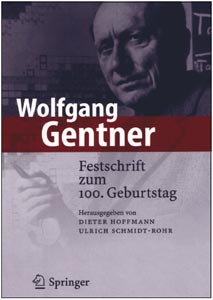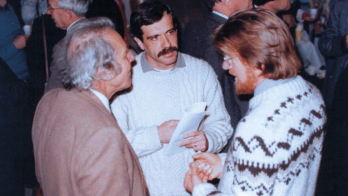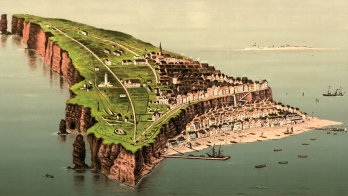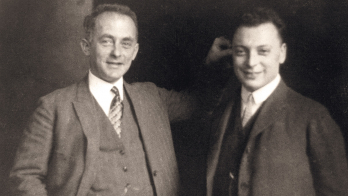By Dieter Hoffmann and Ulrich Schmidt-Rohr, Springer. Hardback ISBN 9783540336990, €79.95 (£57.50, $109).

This book presents a collection of writings in honour of the late Wolfgang Gentner, which was prepared for a colloquium to celebrate the centenary of his birth (23 July 1906). It offers a unique opportunity for colleagues, pupils and friends who knew Gentner – and even more so for those who never met him – to read about his life as a scientist, naturalist, teacher, manager and politician. Readers can also learn more about the generation of scientists, including Gentner, who built a new Europe of scientific collaboration after the disaster of the Second World War. They can appreciate the great merit, vision and efforts of this co-founder of CERN and DESY, who was also the founding director of the Max Planck Institute (MPI) for Nuclear Physics at Heidelberg.
In the early 1950s, Gentner played a key role in Germany together with Otto Hahn and Werner Heisenberg. Through contributions by contemporaries, the book allows the reader to grasp how Gentner realized his vision of international collaboration on scientific research, through the foundation of CERN. It also makes clear how much we owe him for the restart in the early 1950s of fruitful scientific relations between Israel and Germany, and how enthusiastically he promoted scientific collaboration between CERN and the Soviet Union.
The book was conceived by Ulrich Schmidt-Rohr and Dieter Hoffmann, professors of physics and science history at the MPIs in Heidelberg and Berlin, respectively. Despite the untimely death in April 2006 of Schmidt-Rohr, who had been a close collaborator of Gentner at Heidelberg and was author of several books on the history of nuclear-physics laboratories and research in Germany, Hoffmann completed this remarkable overview of Gentner’s life, scientific work, and achievements, which spans more than five decades.
The four-part book is published in German, which is somewhat of a pity. Part I, Studien zu Leben und Werk von Wolfgang Gentner [Studies of the life and works of Wolfgang Gentner], includes, however, an original contribution in English by Sir John Adams, which is accessible to all interested readers at CERN (CERN/DOC 82-3 January 1982 p9). Adam’s appraisal of the man who was not only co-founder of CERN, but who was also at one time or another a CERN director, chair of the Scientific Policy Committee and president of the CERN Council, is worthwhile reading as an authentic record of the early years of CERN. Other chapters of Part I cover topics such as Gentner and big science, Gentner and the public, Gentner and the promotion of German–Israeli scientific relations, and Gentner’s “hobby”, Kosmochemie und Archäometrie [cosmochemistry and archaeometry].
Part II, Erinnerungen an Wolfgang Gentner [Memories of Wolfgang Gentner], contains a collection of personal recollections from collaborators, pupils, friends and family members. Here there are stories about his family life and about the typical working atmosphere in physics institutes of the time, including memories of Valentine Telegdi and Victor Weisskopf serenading Gentner on the occasion of his 60th birthday symposium. In short, the reader is taken back to the good old times and the reading is just fun!
Part III contains a collection of Gentner’s articles and speeches, for example, Aus der frühen Geschichte der gamma-strahlung [About the early history of gamma radiation] and Forschungs einst und jetzt [Research then and now]. This includes two talks related to his hobby, the application of scientific methods to solve questions of archaeology. Gentner was indeed in his later years much attracted by topics related to Kosmochemie and Archäometrie, fields at the intersection of natural and cultural science. Finally, Part IV provides the bibliographic collection of all of Gentner’s publications.
All in all, the book does a marvellous job of tracing the life and scientific achievements of one of the most remarkable and influential scientists and science politicians of post-war Germany and Europe.







